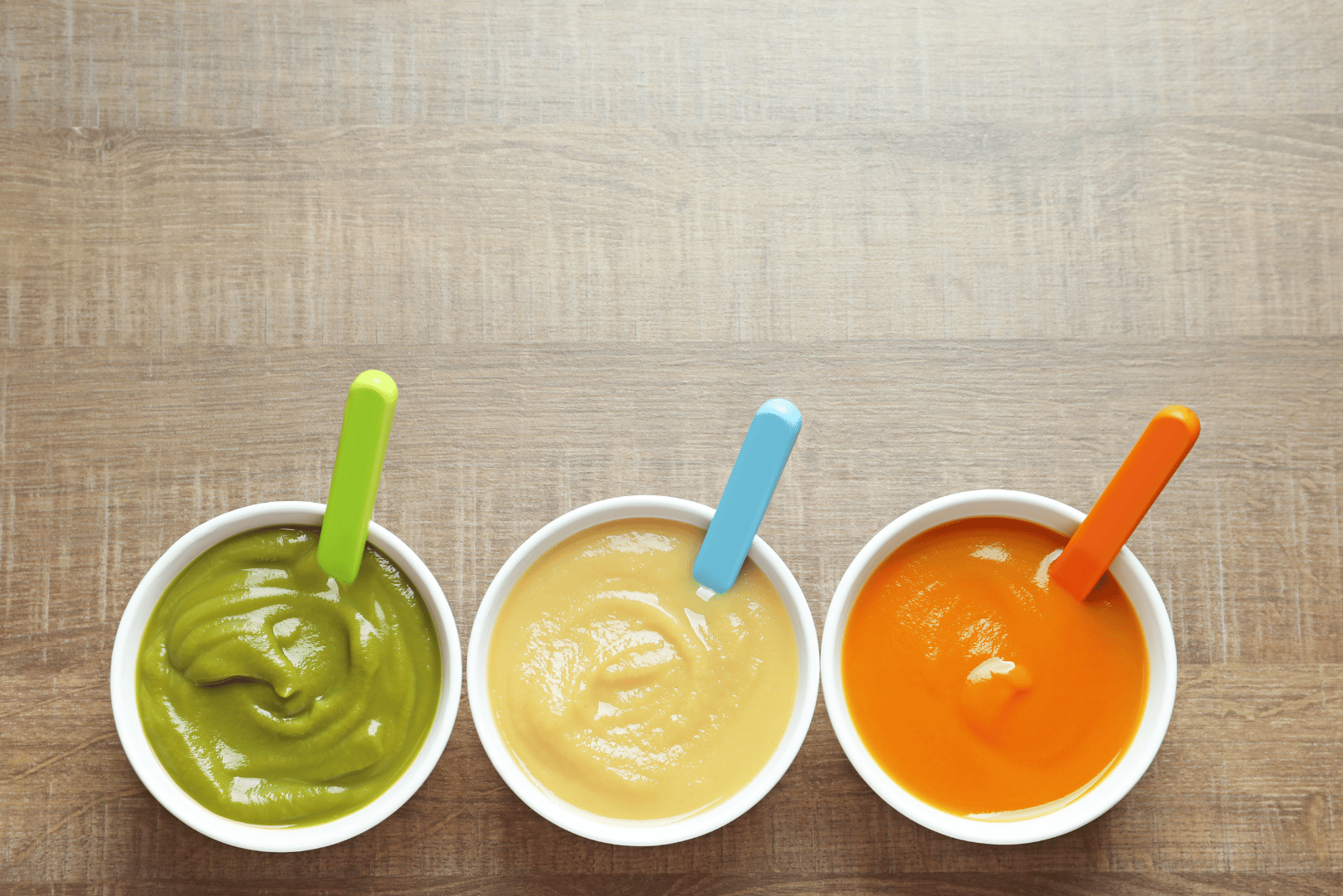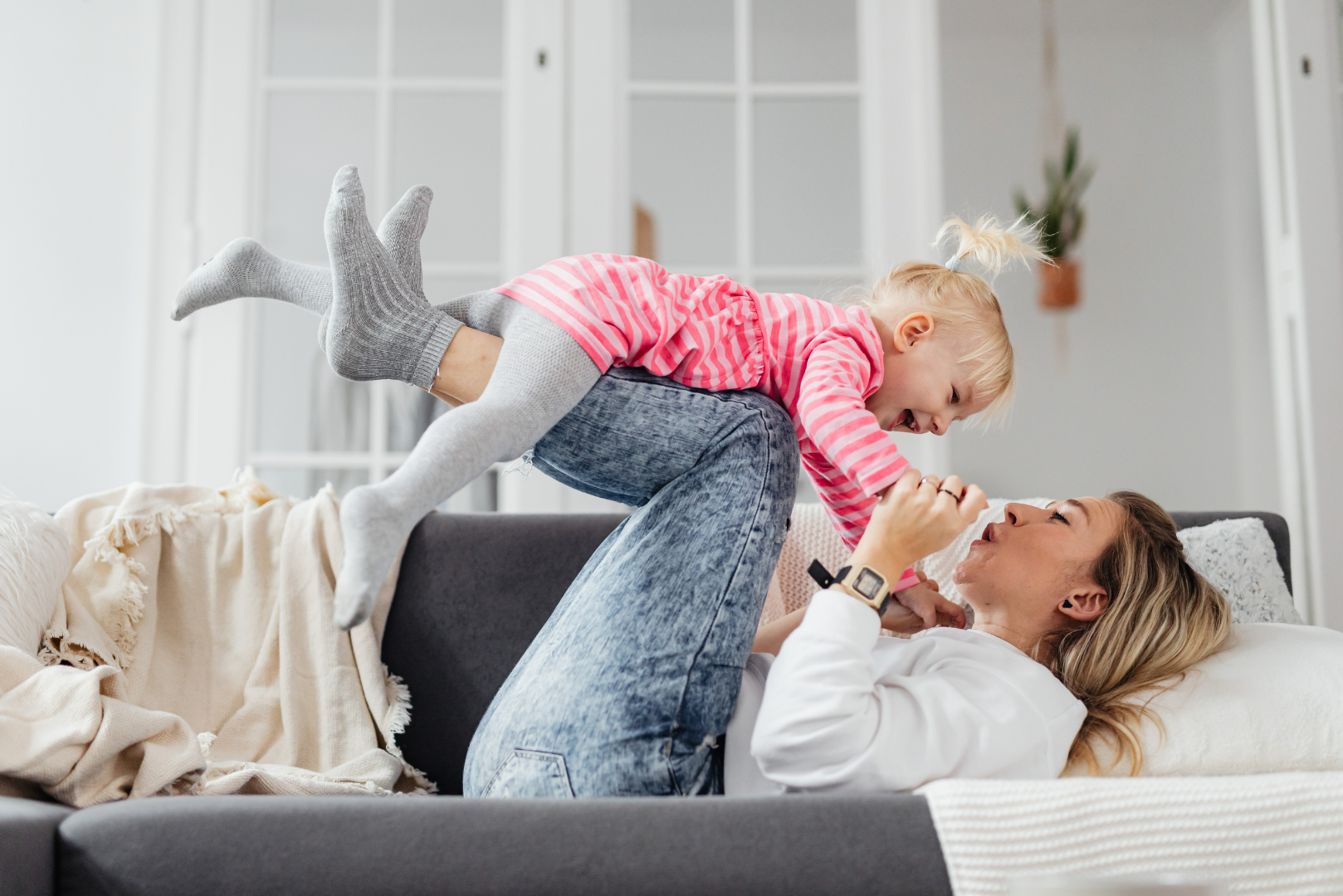TOP OF MIND

Good news! The first postpartum pill is actually working
Back in August of 2023, we told you the FDA approved a medication called Zuranolone. The first oral pill in the United States designed to treat postpartum depression.
Now, nearly one year later, the medication is finally getting to patients, and doctors say it's working!
Dr. Misty Richards, medical director of perinatal psychiatry at the Maternal Outpatient Mental Health Services Clinic at UCLA Health, talked to NBC News about prescribing the medication for a recent patient of hers who had been struggling with postpartum depression.
"She wasn’t taking showers. She wasn’t eating," Richards noted, adding that her husband had to take a leave of absence from work to take care of her and their newborn.
Three days after she started taking the pill? Her symptoms started to ease, and by the end of week one? She saw dramatic results.
The important bits
Richards added that the 42-year-old woman didn't experience any side effects, and after taking the medication for over a week, she felt like herself again.
She tells me she feels like she just woke up. I truly feel like I’m meeting her for the first time. Her husband was in tears, super grateful. Just a major, grand slam success story — which, by the way, we don’t tend to see in psychiatry.
Richards isn't the only medical professional prescribing the drug. Several psychiatrists are writing their first prescriptions for it now that some minor supply chain issues have been resolved.
Before Zuranolone hit the market, the only approved treatment for postpartum depression was an intravenous injection. But it came with the risk of sudden loss of consciousness, so patients had to stay in the hospital for at least two days after taking it.
Other new moms were prescribed standard antidepressants, but those can take weeks to start working. Zuranolone is designed to start working in just a few days.
Still though, some moms are hesitant to take this new pill due to the lack of safety data on breastfeeding. A small amount of the drug could pass from mother to child through breast milk, but studies haven't evaluated if it poses any harm. But most doctors aren't too concerned because studies on other antidepressants have shown they don't pose a significant risk to breast milk.
What's it all mean?
The future looks brighter for new moms suffering from postpartum depression, but there's still work to be done to make this medication more accessible. Most private health insurers have yet to publish criteria for when they will cover it. Without insurance, a 14-day course of the drug could set you back $15,000.
DID YOU HEAR
🩸 This state is saving your baby's blood
Every state in the U.S. requires hospitals to take a small blood sample from newborns to test for genetic diseases. The idea is that it gives doctors critical information to start early treatments that could save your baby's life. In most states, the samples are destroyed or given back to their parents after testing. But in New Jersey? They can keep them stored in a state facility for 23 years without the parents even knowing. And during those 23 years, they can (and have) done whatever they want with the samples.
🛌 The secret "game" to get your children to sleep alone
A doctor by the name of Michael Milobsky recently went viral on TikTok after sharing a "game" developed by the Yale Department of Child Psychology. The goal of the game? To get anxious children to sleep on their own. The Game is recommended for children who are at least 3-year-olds. And basically, the process involves asking your kid to "put on a show" by demonstrating what falling asleep looks like on their own.
Initially, kids practice mimicking bedtime routines for two minutes, gradually increasing to 15 minutes over weeks. Parents set timers and encourage their child to stay in bed alone during the process. Many kids end up falling asleep in their bed after about 10 minutes. Read the full instructions here.
🤳🏽 I screen, you screen, we all screen!
Most parents believe limiting their child's screen time is next to impossible, but a new study suggests you may have more of an impact than you think. The study surveyed over 10,000 12- and 13-year-olds and parents about screen use habits and problematic behaviors, and the results were a little surprising. Findings show parental screen use significantly influences children's screen time and whether it becomes problematic. Particularly, screen use during mealtimes and inside the bedroom were linked to increased time and addictive use.
🍔 Only 32% of parents think the standard American diet is healthy for their kids
A new C.S. Mott Children’s Hospital National Poll surveying parents of young children revealed just one-third of parents believe the standard American diet is healthy for their little ones. Meanwhile, 47% of them believed the Mediterranean diet was the best, while 31% chose the vegetarian diet. But there was some other interesting data revealed in the survey involving food waste and healthy eating. Check out our Bites with Kiyah section below for more on that.
🔥 It's getting hot in here
Summer has officially arrived, and experts say it's going to be brutal, with multiple heat waves impacting the country. Sadly, those same experts say the heat waves are only going to get worse in the coming years. Check out this article to read all the tips and tricks for staying cool and safe this summer.
🏖️ Going to the beach this summer?
Watch out for quicksand... seriously!
BITES WITH KIYAH
A recent Mott Poll revealed that 32% of adults surveyed identified food waste as a barrier to giving their kids a healthy diet. And 69% said they serve their kids (basically) as much as they would themselves. This is, often, too much.
Serving less means wasting less.
Kiyah is the co-founder of Kizingo Kids and an expert in nutrition. Follow her on Instagram.
PARENTS-OF-TODDLERS APPROVED CLEANING PRODUCTS

Trying to keep things spotless while raising a toddler is a lot like trying to eat ice cream with a fork. It might work for a minute or two, but eventually, the ice cream is going to melt and the fork won't offer any protection.
But you don't have to give up, there are products that can help you! Check out a few of our favorites below, and yes, they've all been tested by real parents.
Overwhelmed with laundry? This "revolutionary" foldable laundry hamper saves you time and lost socks by being able to go inside your washing machine or dryer. All you have to do is rotate the drum, and the hamper collects all the clothes inside.
This is by far the best instant carpet (and everywhere else) spot remover. You're going to need it at some point.
Does the inside of your car look like the floor of a movie theater? You probably need a car vacuum, and good news, you don't need to spend a fortune on it. This $37 one is parent-approved.
HERE’S A QUESTION
Last week, we asked you how much your weekly allowance budget was, and around 60% of you said $5, while around 20% said $10. No one answered $20+!
RECALLS
Nearly 1.9 million bottles of Fiji water
If you were feeling fancy lately and purchased some bottles of Fiji water, you might want to check the UPC code to make sure your bottle isn't part of the huge recall.
The FDA issued a recall of over 78,000 cases of Fiji water sold across the country online after they found the presence of manganese and three different strains of bacteria. Ingesting high levels of manganese can result in a neurological disorder called manganism.
Thankfully, the majority of these cases have been found and removed from the warehouse, but there are still a few out there that didn't get pulled.
To make sure your water is safe, look for the following UPC codes:
Case UPC code: 6 32565 00004 3
Bottle UPC code: 6 32565 00001 2





